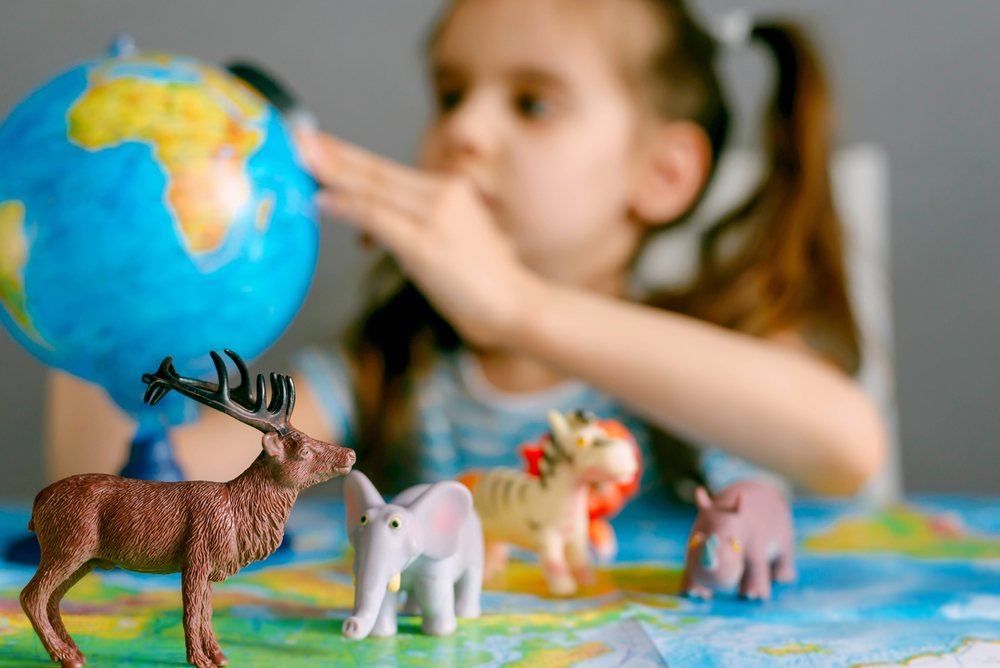Cultural awareness Normal Geography Worksheets for Ages 3-8
5 filtered results
-
From - To
Explore our engaging Cultural Awareness Normal Geography Worksheets, designed specifically for children aged 3-8. These worksheets aim to foster an appreciation for diverse cultures and practices around the world, helping young learners to develop a global mindset early on. Filled with vibrant images and age-appropriate activities, they encourage kids to investigate different traditions, languages, and lifestyles. Whether you're a teacher or a parent, these resources promote inclusivity and understanding while making geography fun and accessible. Let your child embark on an exciting journey of cultural discovery and enrich their knowledge of the world with our thoughtfully crafted worksheets!
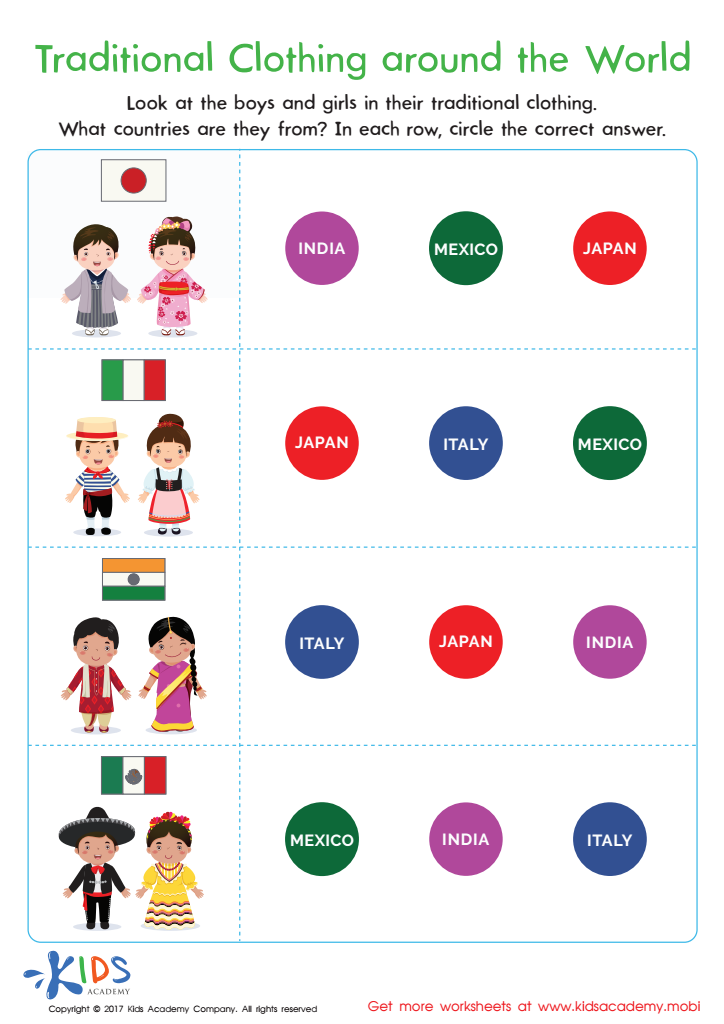

Traditional Clothing Worksheet
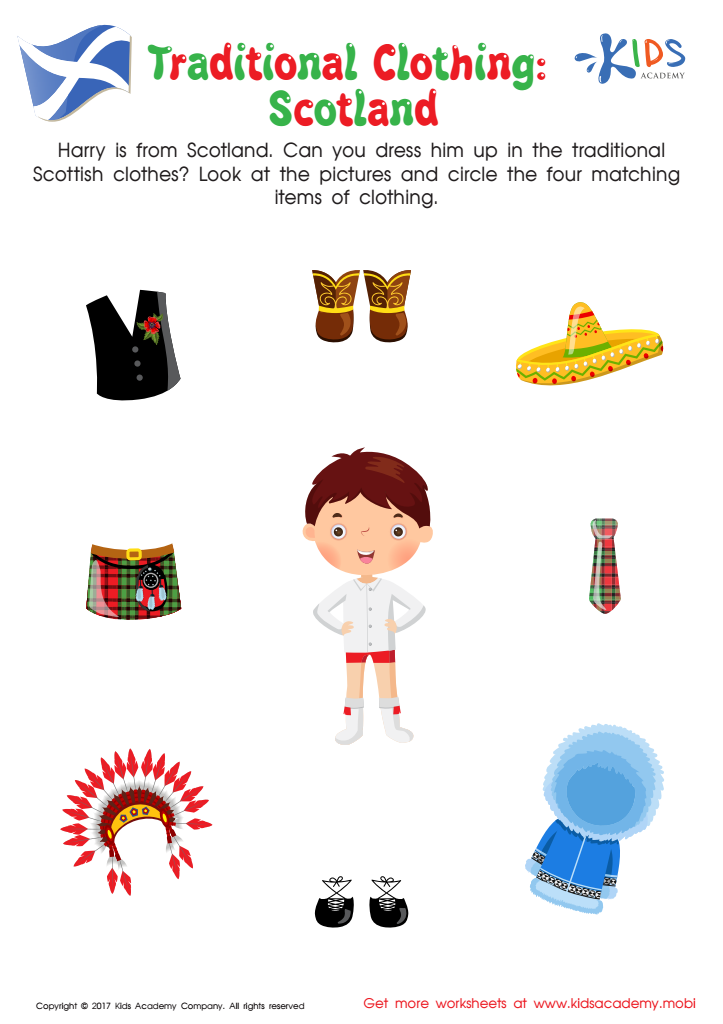

Traditional Clothing in Scotland Worksheet
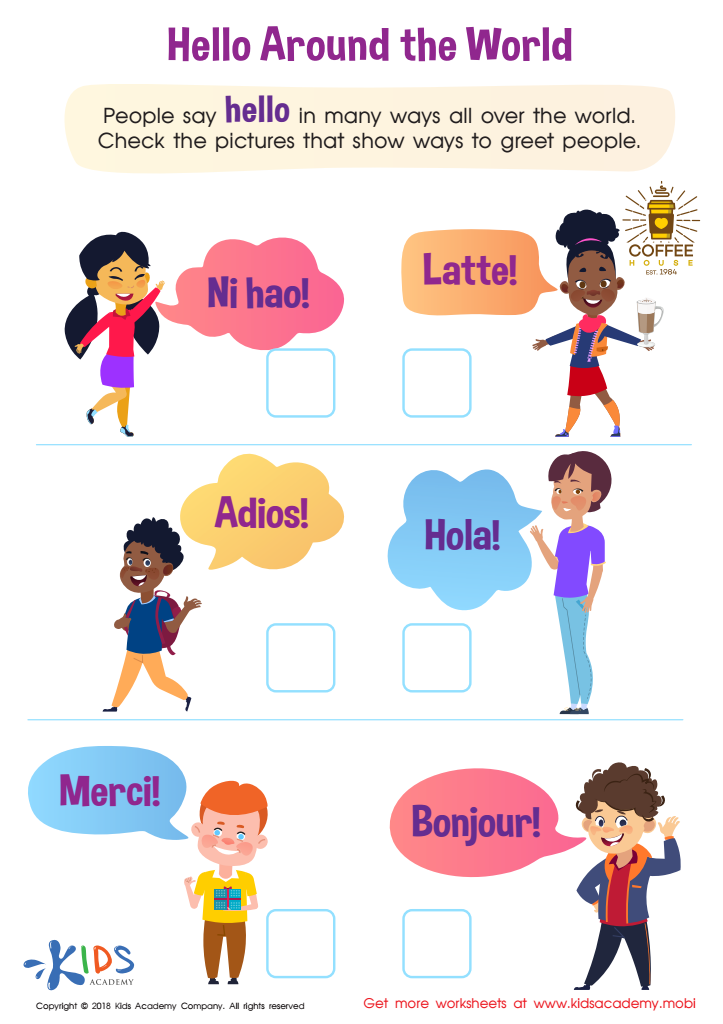

Hello Around the World Worksheet
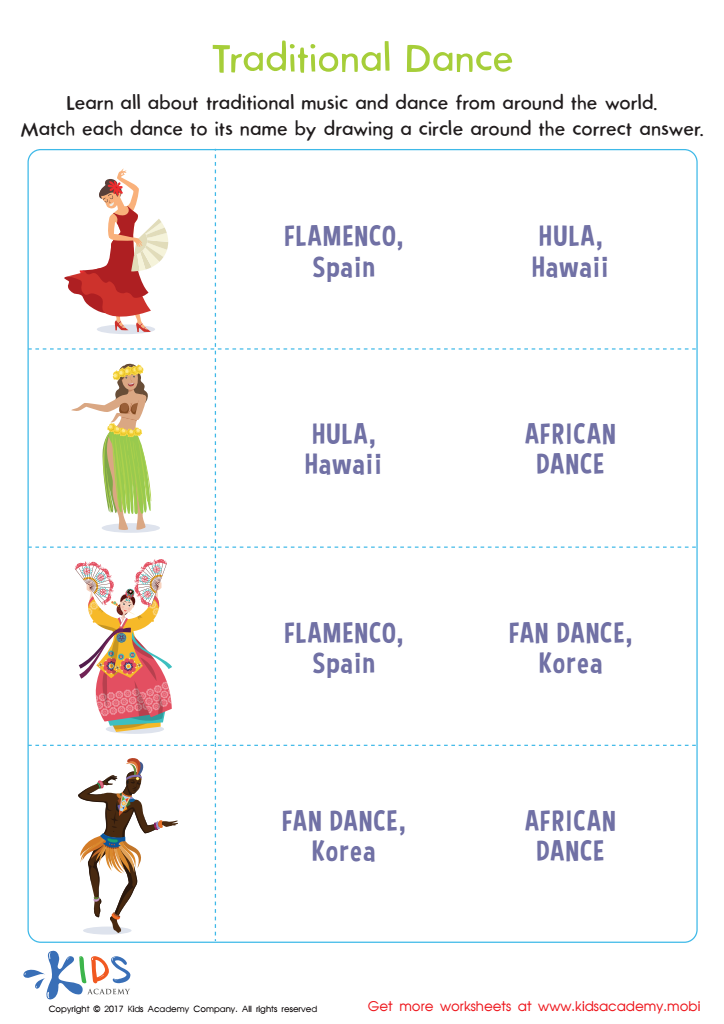

Traditional Dance Printable
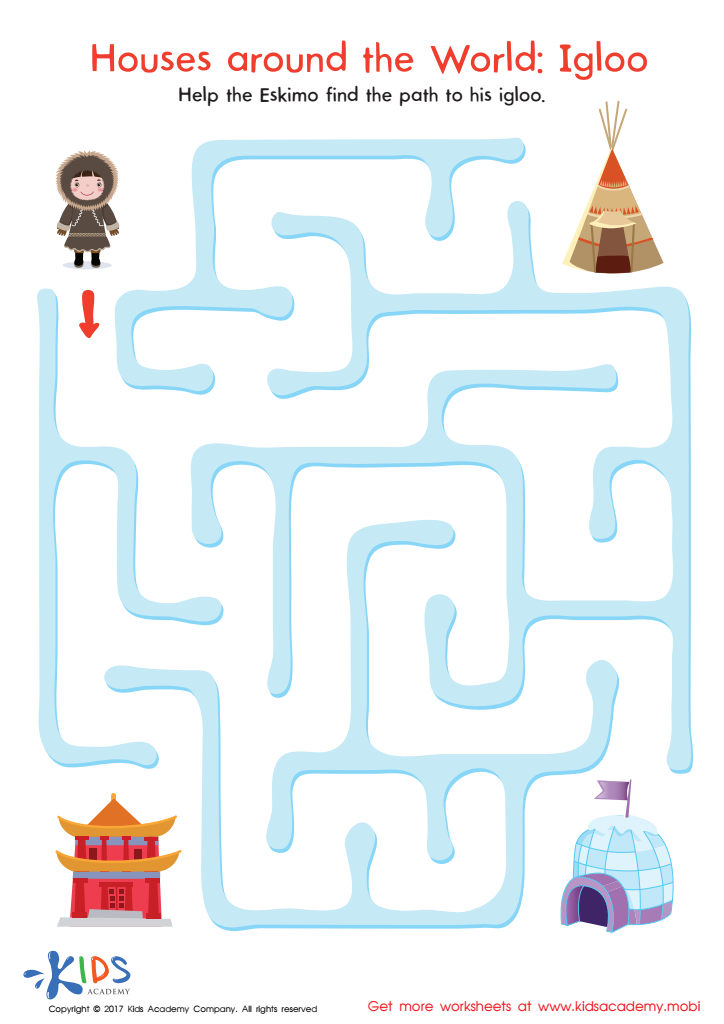

Houses Around the World: Igloo Printable
Cultural awareness and geography are essential components of early childhood education, particularly for children aged 3 to 8. During these formative years, children are developing their understanding of the world around them, and fostering cultural awareness helps them build empathy and respect for diverse perspectives and lifestyles.
Parents and teachers who prioritize cultural awareness equip children with the tools to appreciate differences and similarities among people. Engaging children in discussions about cultural practices, traditions, and geography broadens their mindsets and helps them feel connected to a larger global community. Activities such as exploring maps, discussing different cultures, and celebrating international holidays create a rich learning environment.
Furthermore, understanding geography aids children in grasping the importance of their place in the world. It encourages curiosity about how various environments influence cultures and lifestyle choices. By introducing these concepts at a young age, educators and parents can also combat stereotypes and foster inclusivity, leading to more harmonious communities.
Ultimately, nurturing cultural awareness and geographical knowledge fosters critical thinking and openness in young learners, preparing them to become compassionate, informed global citizens as they grow. Recognizing the significance of these educational elements lays the groundwork for a more empathetic and connected future generation.

 Assign to My Students
Assign to My Students







